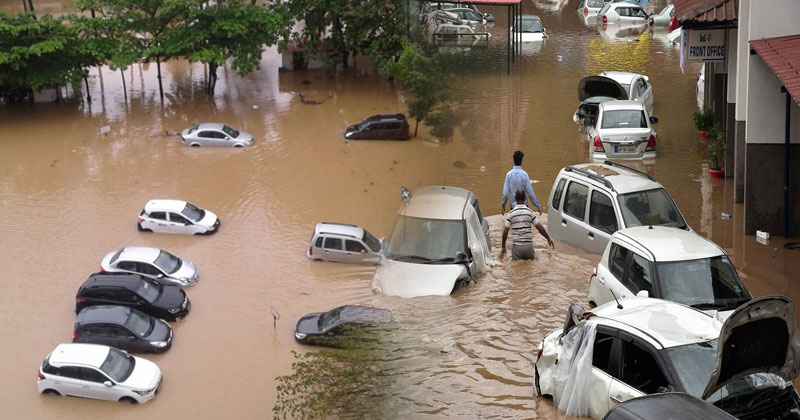
Do not start your car if it has sat in or been through high water. If the car has been sitting in water for a long time, especially in salt water, you may need to drain your oil, transmission fluid, and lube before even moving the vehicle. Get the car out of the water as quickly as possible, and start the recovery process as soon as you can. The longer your car sits in water, especially muddy water or salt water, the greater potential damage to key systems. Do not start your car until you are confident that its key systems have been drained of water.
Don’t start the car!
Your car is a complex ecosystem of electrical systems, fluids and mechanical parts that work best when kept water-free. Giving your car ignition sets off all sorts of electrical charges and mechanical processes, all of which could go horribly wrong if combined with water. Your best bet is to get it towed to a mechanic.
Check the level of submersion
Flooding will inflict damage to your car only if it is submerged beyond a particular level. Check for the waterline left behind by the dirt in flood water. If submersion is below door-level, you’re probably good to go. Any higher and you may need professional intervention.
Dry the interior out
If water has gotten into the cabin, try your best to get it out. Crank open the windows, use towels and newspapers to soak up water. It doesn’t take long for mould to start developing in moist conditions, so consider replacing your carpets, seat covers, etc.
Also Read: Periyar river rise in Water level, Over 10,000 people relocated from banks
Check the mechanical systems
If DIY is your mantra, poke around your car to look for water contamination. Check the oil dipsticks for water droplets, ensure the air filter is dry and make sure that the brake fluid, power steering fluid, fuel system, etc., are water-free; your car depends on the sanctity of these fluids to function properly. However, if you aren’t too mechanically proficient, we strongly urge you to get your mechanic to check everything out.
Contact your insurance company
If you have a comprehensive insurance policy for your car – you ideally should – then most damage inflicted by floods will be covered by it. Let your insurance company know that your car has been flood-damaged and a claim will be coming their way. They will guide you to the nearest authorised workshop to have inspections, repairs and replacements carried out. Insurance companies, and workshops authorised by them, tend to be inundated with orders in the aftermath of widespread flooding, so try to get in touch with them as soon as possible.

Post Your Comments